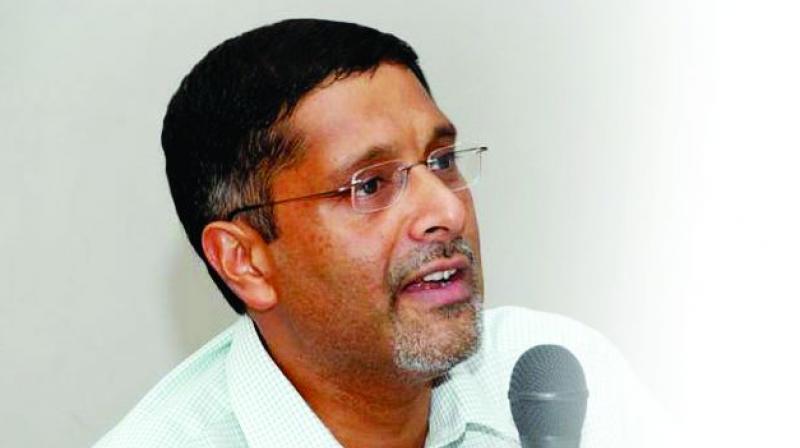Self-censored experts are useless to RBI: CEA
By trying to remain in favour, no one is going to benefit.

New Delhi: Chief Economic Adviser Arvind Subramanian has rued lack of independence among economists to present analysis which is critical of government or RBI.
“My claim is that experts often hold back their objective assessment. Instead, they censor themselves, and in public fora are insufficiently critical and independent of officialdom-whether the officials are in Mumbai or Delhi. To the extent they offer criticism, it is watered down to the point of being unidentifiable as criticism,” he said while delivering VKRV Memorial Lecture in Bengaluru organised by Institute for Social and Economic Change.
For a variety of reasons, Mr Subramanian said experts feel the need to stay on the right side of power-whether the RBI or government. “So, before policy decisions are taken the experts tend to express the views they think officials are likely to take. After policy actions, they try hard to endorse the decisions already taken. As a result, we in the government do not really benefit from their wisdom.
This is a serious problem, because high-quality policymaking demands high quality inputs and high quality debates,” he said.
The CEA said that a major source of macro-economic commentary is from stakeholders, such as bankers and other financial sector participants, whose relationship to officialdom is not arms-length. “Bankers are careful not to get on the wrong side of the government or the RBI, because they worry about losing access and because they are regulated by them,” he said.
Mr Subramanian said that paradox is that in other spheres — such as trade policy or development policy — one sees a more vibrant, healthy, and unself-censored debate.
The CEA also said that macro-economics is central to the work “we do at the Ministry of Finance and the RBI.” “Many key policy decisions are driven and underpinned by an assessment of the macro-economic situation,” he said.
Coming on to the current economic scenario, Mr Subramanian said that inflation pressures are easing considerably and the inflation target has been over-achieved and real activity remains weak. “Against this background most reasonable economists would say that the economy needs all the macroeconomic policy support it can get: instead, both fiscal policy and monetary policy remain tight. And on top of that, there are some officials who even think that policy should get tighter,” said Mr Subramanian.
He criticised the analyst community for not highlighting that country has over-achieved on inflation well in advance of scheduled targets. “In sum, have they highlighted that inflation is under control and (economic) activity may be weakening, calling for all the fiscal and monetary policy support that the economy may badly need?,” he asked.

